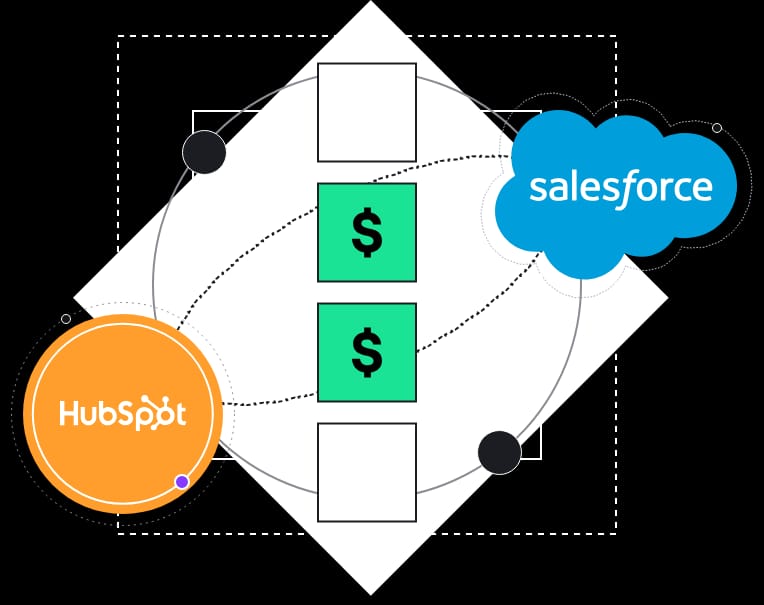
What is Salesforce HubSpot Integration?
Salesforce HubSpot integration is the process of connecting two powerful customer relationship management (CRM) platforms, Salesforce and HubSpot, to streamline data management, improve communication, and enhance overall efficiency. By integrating these platforms, businesses can synchronize customer data, automate workflows, and gain a comprehensive view of their sales and marketing activities. This integration facilitates seamless collaboration between sales and marketing teams, enabling them to work more cohesively towards common goals. Ultimately, Salesforce HubSpot integration empowers businesses to leverage the strengths of both platforms to enhance customer engagement and drive growth.
How to Implement Salesforce HubSpot Integration?
To implement Salesforce HubSpot integration, hire Salesforce HubSpot integration services is crucial. Begin by assessing your business needs and objectives, then select the appropriate integration method. Whether it’s utilizing pre-built solutions or opting for custom integration, expert assistance ensures seamless implementation. Collaborate closely with integration specialists to map out data requirements, configure settings, and test workflows thoroughly. Effective communication between sales, marketing, and IT teams is essential throughout the process. Finally, invest in training and support to empower your employees to leverage integrated CRM capabilities effectively. With meticulous planning and expert guidance, implementing Salesforce HubSpot integration can enhance CRM efficiency and drive business growth.
Why Integrate Salesforce and HubSpot?
Integrating Salesforce and HubSpot offers numerous benefits to businesses seeking to maximize CRM efficiency. By consolidating customer data from both platforms, businesses can gain a comprehensive view of their customers’ interactions and preferences. This holistic view enables more personalized communication and targeted marketing efforts, leading to improved customer engagement and satisfaction. Additionally, integrating Salesforce and HubSpot streamlines workflows, reduces manual data entry, and eliminates silos between sales and marketing teams. This alignment fosters collaboration and ensures that teams are working towards common objectives, ultimately driving better business outcomes and ROI.
Tips for Maximizing CRM Efficiency through Integration
To maximize CRM efficiency through Salesforce HubSpot integration, businesses should consider several key tips. First, clearly define integration objectives and align them with overall business goals. Next, prioritize data cleanliness and consistency to ensure accurate insights and reporting. Additionally, establish clear communication channels between sales and marketing teams to foster collaboration and alignment. Regularly monitor and optimize integration processes to adapt to changing business needs and technology advancements. Finally, invest in ongoing training and support to empower employees to leverage integrated CRM capabilities effectively.
Types of Salesforce HubSpot Integration Services Available
There are various types of Salesforce HubSpot integration services available to businesses, ranging from basic data synchronization to more advanced automation and customization. Some common integration services include syncing contacts, leads, and opportunities between Salesforce and HubSpot, automating lead nurturing and follow-up processes, and tracking marketing attribution across both platforms. Additionally, businesses can leverage custom integration solutions tailored to their unique requirements, such as integrating with other third-party applications or building custom workflows. By exploring different integration services, businesses can choose the right approach to optimize CRM efficiency and achieve their specific objectives.
Choosing the Right Integration Approach for Your Business Needs
When selecting the integration approach for Salesforce HubSpot integration, businesses should consider factors such as data volume, complexity, budget, and timeline. They can choose from pre-built integration solutions offered by Salesforce and HubSpot, which provide out-of-the-box functionality and rapid deployment. Alternatively, businesses may opt for custom integration solutions developed by third-party vendors or in-house development teams, offering greater flexibility and scalability to meet unique requirements. By evaluating their specific needs and considering the pros and cons of each approach, businesses can select the integration method that best aligns with their objectives and resources.
Key Benefits of Utilizing Salesforce HubSpot Integration Services
Utilizing Salesforce HubSpot integration services offers several key benefits to businesses, including improved data accuracy, enhanced collaboration between sales and marketing teams, streamlined workflows, and increased productivity. By consolidating customer data and automating repetitive tasks, businesses can focus their efforts on more strategic initiatives, such as lead generation, nurturing, and conversion. Additionally, integrated CRM capabilities enable better tracking and analysis of marketing campaigns, resulting in more informed decision-making and optimized resource allocation. Overall, Salesforce HubSpot integration empowers businesses to unlock the full potential of their CRM systems and drive sustainable growth.
Best Practices for Seamless Integration and Optimal Performance
To ensure seamless integration and optimal performance of Salesforce HubSpot integration, businesses should follow best practices throughout the implementation process. This includes conducting thorough planning and preparation, involving key stakeholders from sales, marketing, and IT departments, and documenting integration requirements and workflows. Businesses should also prioritize data quality and governance to maintain accuracy and consistency across both platforms. Regular monitoring and testing of integration processes are essential to identify and address any issues promptly. Additionally, investing in ongoing training and support for employees can help maximize the benefits of integrated CRM capabilities and drive long-term success.
Conclusion
Hiring Salesforce HubSpot integration services is a strategic investment for businesses looking to maximize CRM efficiency. By seamlessly connecting these powerful platforms, businesses can unlock valuable insights, streamline processes, and foster collaboration between sales and marketing teams. With the right integration approach and best practices in place, organizations can enhance customer engagement, drive growth, and achieve sustainable success. Ultimately, Salesforce HubSpot integration empowers businesses to leverage the full potential of their CRM systems, adapt to evolving market demands, and stay ahead in today’s competitive landscape.





